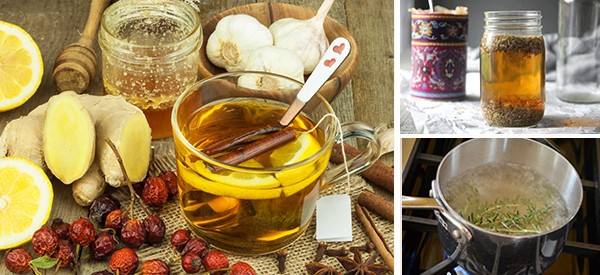
Cold and Flu Cheat Sheet
No one likes dealing with a cold or the flu. Everything hurts, it’s hard to breathe, and you often can’t think straight.
While we may not be able to rest, we aren’t completely hopeless. There are plenty of plants that can help reduce how long we are sick and get rid of some of the symptoms. They may not be able to put you back in tip-top shape, but they can make the days a lot more bearable.
Keep reading below to get a cheat sheet of common cold and flu symptoms and what to take to help alleviate them.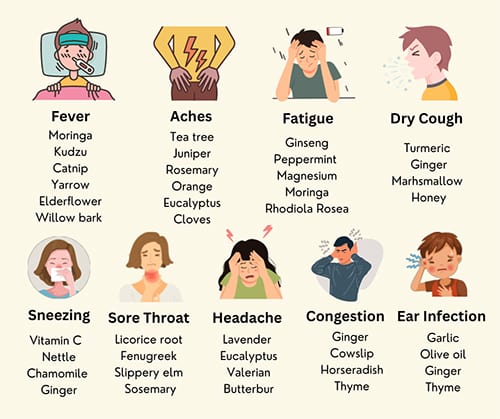
Fever
When body temperatures stay high, it is best to go to a doctor right away, especially for children as they can’t handle fevers as well. However, to prevent your fever from climbing dangerously high in the first place, there are some natural remedies you can use. The two best herbal remedies are moringa and kudzu root.
Moringa (Moringa oleifera) is full of vitamins, minerals, antibacterial agents, and antioxidants. Studies haven’t been fully tested on people, but have been shown to be helpful in animals.
For daily use, you can use the leaves of the Moringa in cooking, as it is naturally used. However, for a punch of nutrients that aren’t degraded by heat, you can purchase leaf powder, which you can mix into smoothies or juices. There are also capsules that can be easier to take for some people.
As for Kudzu (Pueraria montana) roots, they have been used for a long time in Chinese medicine to help with all sorts of health problems including hangovers, chest pain, sinus infections, measles, muscle pain, and more. Kudzu is most often dried and ground into a powder. You can mix this into drinks, or use it in your food. Some people use it as a coating for fried foods while others use it to thicken sauces. There are also tinctures and capsules available.
Catnip (Nepeta cataria) can also help. This mint relative isn’t just for kitty cats. Because this herb stimulates perspiration, it’s also used to treat fevers. It can either be served in a salad or as tea.
Aches
One of the best remedies for body aches is a warm bath. You don’t want it to be too hot when you have the flu or a cold, as it can aggravate your fever, but a warm bath can help reduce your temperature and body aches.
Adding Epsom salt to a bath can also help. You can either get a pre-scented Epsom salt or a basic one with a few drops of essential oil.
The best essential oils to help soothe the body include: Tea tree, Juniper, Rosemary, Thyme, Orange, Lavender, Eucalyptus, Cloves.
These essential oils can be sprayed into the air, put in the bath, or diluted with carrier oil and rubbed on the skin.
Fatigue
While you can’t really cure fatigue, you can give your body some pick-me-ups to help boost your energy. Ginseng (Panax quinquefolius and Panax ginseng) works well to increase your immune system’s strength. It has helped those with chronic fatigue and some have said that it helps them through their cold and flu fatigue.
The most common way to take ginseng is via tea and capsules. However, you will want to check the brand and ingredients carefully, as many ginseng vitamins actually don’t contain very much of the root.
In addition to reducing fatigue, it can help prevent and treat the flu and possibly even Respiratory Syncytial Virus (RSV).
Peppermint essential oil have also been found to offer a quick burst of energy. Simply put in a humidifier, spray in the air, or put a few drops on a cloth to get the benefits.
Magnesium is also important for your health and energy levels. It is essential for most body processes, including converting food into energy. You can take supplements or eat foods that are high in magnesium such as beans, dark leafy vegetables, oatmeal, almonds, and chia seeds.
Sneezing
Sneezing isn’t often something you can stop in colds and flu. It is often caused by irritation in the nasal passages, so the best way to reduce your sneezing is to reduce other symptoms from cold and flu. Increasing your nutrients is the first step.
Both vitamin C and zinc help with cold and flu symptoms and also reduce sneezing. There are vitamins containing both, and fruits like oranges, grapefruits, and strawberries also contain vitamin C naturally.
Just be careful to watch the dosing of zinc, it has been known to make people feel nauseous and you don’t need much in a day.
Dry Cough
Dry coughs can be annoying and persistent long after your cold is over. Sometimes, the bubbles in soda can help, but only for a little while. Thankfully, there are plenty of natural herbs to help alleviate your cough as well.
Ginger (Zingiber officinale) also works to help relieve pain and discomfort, such as with a dry cough. There are many ways to take ginger, such as in capsules, tea, or with your food. Some even chew directly on a ginger root to reduce dry coughing.
Turmeric (Curcuma) is one. This herb contains a compound known as curcumin, which can help with dry coughs as well as being anti-inflammatory, antiviral, and antibacterial. It is absorbed best by mixing it with black pepper.
For best results, add a teaspoon of turmeric and ⅛ of a teaspoon of black pepper to any beverage or drink. Mixed into cold orange juice or made into tea are considered the tastiest options.
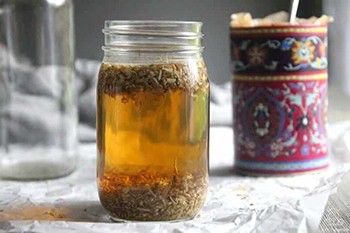 Marshmallow root (Althaea officinalis) is an herb that can also help to remove a dry cough and remove the pain or tickling in the throat associated with a cough. There is marshmallow root extract and you can also find it as an ingredient in teas.
Marshmallow root (Althaea officinalis) is an herb that can also help to remove a dry cough and remove the pain or tickling in the throat associated with a cough. There is marshmallow root extract and you can also find it as an ingredient in teas.
Often, you can find a combination of these herbs and roots together in pre-made tea blends for colds and sore throats.
Sore Throat
There are plenty of natural remedies to help with sore throat. Roots like licorice root (Glycyrrhiza glabra) and marshmallow root (Althaea officinalis) are good options. Licorice root has a long history of reducing sore throats and inhibiting the growth of the bacteria that causes strep throat. It is best used as tea.
Marshmallow root is an herb that contains mucilage, which is a thick substance that coats the throat and provides soothing. It can be used as tea, a tincture, or in a capsule.
Plants like chamomile (Matricaria chamomilla), fenugreek (Trigonella foenum-graecum), and garlic (Allium sativum) are also good choices. Chamomile works best in tea, as the warm water mixes well with the anti-inflammatory and astringent properties of the chamomile. For an extra-effective remedy, add a spoonful of honey. You can also inhale chamomile steam to get similar benefits.
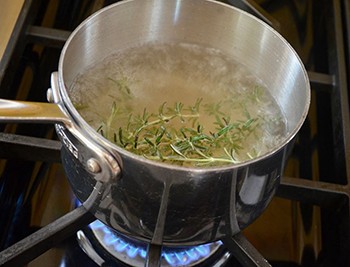 Rosemary is an age-old herb known to provide relief for colds and sore throats. Known for its anti-viral and anti-microbial properties, it is said to stimulate the blood circulation to the brain to ease headaches. Inhaling the steam from its boiled leaves and stem bits works effectively for nasal and chest congestion.
Rosemary is an age-old herb known to provide relief for colds and sore throats. Known for its anti-viral and anti-microbial properties, it is said to stimulate the blood circulation to the brain to ease headaches. Inhaling the steam from its boiled leaves and stem bits works effectively for nasal and chest congestion.
Mullein (Verbascum thapsus), This plant is a traditional treatment for respiratory problems and one of the natural ways you can heal ear infections. Modern practitioners recommend mullein leaf tea or decoction for respiratory conditions, as well as for sore throats. Pour 1 cup of boiling water over 1 to 2 tsp of fresh leaves and steep for 10 minutes before straining. He recommends running it through a coffee filter or cheesecloth to filter out any remaining irritating plant hairs.
Fenugreek comes in many forms, including seeds, oil, or tea. It helps with sore throats by reducing inflammation and irritation. Garlic is antibacterial and contains allicin, which is known to help fight off infections. Add fresh garlic to your diet wherever you can, or suck on a garlic clove when your throat is sore.
You can also look at peppermint (Mentha X piperita) and Slippery elm (Ulmus rubra). Peppermint contains a compound called menthol which can help to reduce coughing, mucus, and sore throats. You can make peppermint tea with the leaves or dilute food-grade peppermint oil with carrier oil and use it as a throat spray.
Slippery elm may not be known as well as others on this list. Like marshmallow root, slippery elm contains mucilage, and when mixed with water, it creates a thick gel that can soothe the throat. Usually, it comes in a powdered format, and you just pour hot water over it and drink it. There are also lozenges.
Headache
It can be difficult to cure a headache, as it depends on properly identifying the type you have. Even when you have a cold, you can be experiencing a headache due to lack of sleep, nutrients, caffeine, or water.
Some essential oils can also help, like peppermint, lavender, and eucalyptus. You can use carrier oil and rub them on your temples or simply place the smell around your home with a humidifier.
For the most part, the best way to reduce a headache is to meet the needs above. Make sure you get sleep when you can, and remember that your body often needs more sleep when you are sick. You also want to make sure you are eating and drinking enough.
⇒ Similar to Morphine: The Best Natural Painkiller that Grows in Your Backyard (Video)
If you’ve tried all of these and you still find yourself with a headache, magnesium is a good supplement to try as well. A lack of magnesium in your diet can cause headaches and those that have more magnesium in their diet tend to have less frequent migraines and headaches.
Congestion
One of the biggest ways to help reduce congestion is to make sure you have enough moisture. You need to drink plenty of water, but you also want to increase the humidity in the air with a humidifier or steamer.
Ginger (Zingiber officinale) is also shown to help with congestion. While it mostly helps with congestion due to allergies, it can help with colds as well. Studies have shown that 500 milligrams of ginger a day can be just as effective as loratadine.
Studies haven’t been done on its anti-congestion properties for colds, but since it can help alleviate most cold and flu symptoms, it stands to reason it can help. You can take ginger extract, make ginger tea, or add it to your foods for the best results.
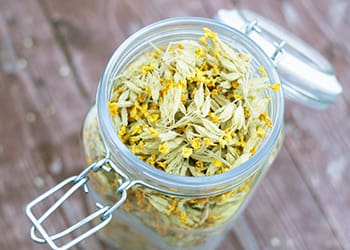 Cowslip (Primula veris). It can be hard to visualize warm, tranquil country meadows when you’re trapped in bed with a cold, but the root of these pretty yellow flowers might help. “The roots, which contain triterpenoid saponins, have powerful expectorant properties”. Use cowslip as a decoction to loosen phlegm and chest congestion. Place the roots and water (1 cup of water for every 1 ounce of the root) in a pot and bring to a boil. Lower the heat and simmer for 20 minutes. Strain and drink.
Cowslip (Primula veris). It can be hard to visualize warm, tranquil country meadows when you’re trapped in bed with a cold, but the root of these pretty yellow flowers might help. “The roots, which contain triterpenoid saponins, have powerful expectorant properties”. Use cowslip as a decoction to loosen phlegm and chest congestion. Place the roots and water (1 cup of water for every 1 ounce of the root) in a pot and bring to a boil. Lower the heat and simmer for 20 minutes. Strain and drink.
Horseradish (Armoracia rusticana). Not only is this spicy root rich in vitamin C, but it also contains isothiocyanates and sulforphane, two compounds that clear congestion. You can make your own horseradish condiment by grating the root and adding vinegar as desired.
Mucus
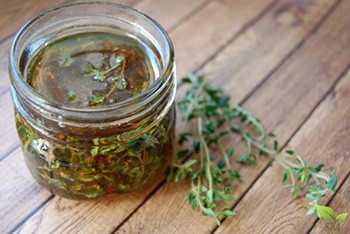
Hydration is essential to help keep mucus flowing and stop it from becoming thick and problematic. Make sure you drink plenty of water. Try adding a little lemon to your water as well, to get a boost of vitamin C.
Studies also show that spicy foods can help keep your mucus thin and moving as it should. This is because of capsaicin in spicy foods, especially peppers, and cayenne. This is only a temporary solution but can help relieve the pressure from mucus build-ups.
Peppermint and eucalyptus oils have been used effectively as natural decongestants. You can diffuse it into the air, use it as a steamer, or apply it with carrier oil around the chest and throat as well as under your nose.
Thyme tea eases coughs and bronchial spasms and helps clear congestion and mucus of a cold. Thyme is also rich in disease-fighting antioxidants.
Ear Infection
Ear infections aren’t a common complication with colds and flu, but some more susceptible people may get ear infections when there is a lot of build-up in the sinuses.
Olive oil is one remedy that hasn’t been tested, but many people swear by it. To treat an ear infection, all you have to do is supposedly add a few warm drops of oil in each ear. The olive oil shouldn’t be any warmer than your skin.
Ginger (Zingiber officinale) and garlic (Allium sativum) are also effective. Ginger can help to reduce inflammation in the ear and soothe the pain that comes with earaches. Ginger should never be put directly in the ear, but placing warmed juice from the ginger root or oil with ginger in it around your outer ear canal can help.
Garlic also has pain-relieving properties and is an antibiotic. You can soak garlic in oil for a little while and then rub it on the outside of the ear canal. You can also try our garlic and mullein oil recipe that works well for ear infections.
The Bottom Line
As you might have noticed, there are a plethora of natural remedies and plants that help with multiple cold and flu symptoms. Try to incorporate these into your day to help you feel better even when you are suffering from a nasty cold. You can also try to incorporate these into your daily life, as many of them help to prevent colds and flu as well as treat symptoms.
You may also like:
 The DIY Turmeric Tonic That’ll Help You Conquer a Cold
The DIY Turmeric Tonic That’ll Help You Conquer a Cold
This Will Fight Viral Infections for You (Video)
Soothing Elixir For Cold and Flu Season






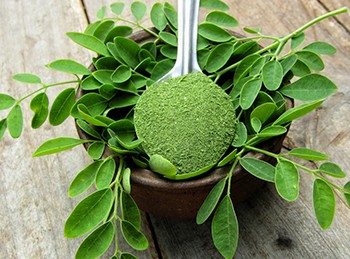
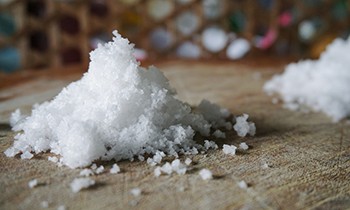
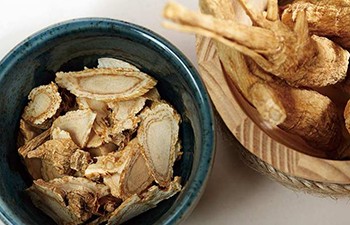

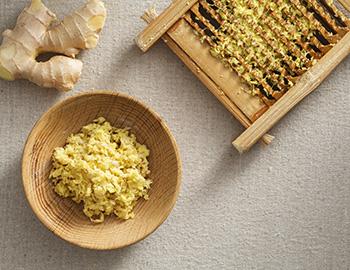
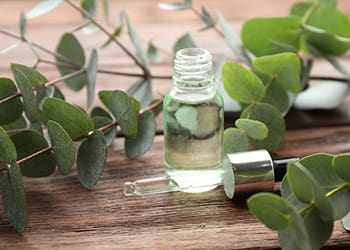
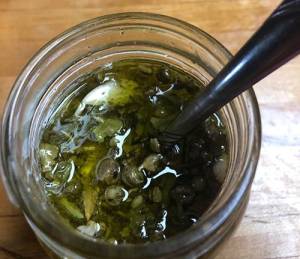

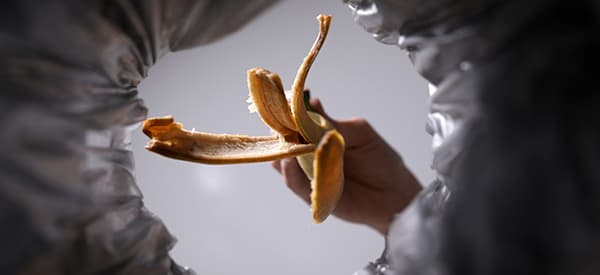
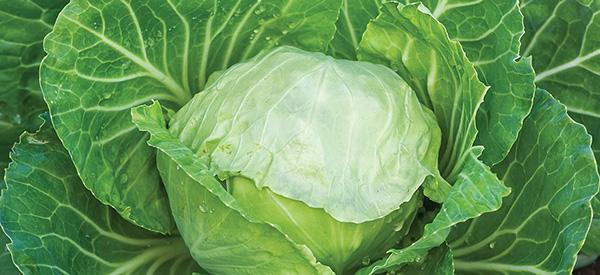
This is great to have for quick home reference. Thank you.
Hi Tammy,
Thank you for your kind words! I’m happy to hear the article was helpful.
Many blessings and good health!
Can you make these printable in a condensed version ?
I adore these!!
Hi Wendy,
That’s so nice to hear! Your feedback really helps us understand if we’re on the right track.
Many blessings and good health!
Please include Elderberry. Doctors are requesting people with lung problems sore throats even sinus problems to regulate body’s resistance to cold and flu like systems. To take elderberry to improve body’s immunity.
Hi Norma,
Thank you for your post. Indeed, Elderberry works wonders when you have a cold, and for immunity-boosting as well.
You might be interested in our articles about Elderberry:
https://thelostherbs.com/elderberry-syrup-with-echinacea-and-goldenseal/
https://thelostherbs.com/how-to-make-immune-boosting-elderberry-syrup/
https://thelostherbs.com/how-to-infuse-honey-with-elderberry/
Many blessings and good health!
White clover blooms are fantastic for cold and flu symptoms! 😊 I was feeling sick last month so I decided to pick some fresh white clover blooms (about 5) and steeped them in hot water for about 10 minutes. I drank it, felt much better, and by the next day it was as if I had never been sick! I picked more and dried them, now I have a good little supply. I’m amazed at how well it worked!
Hi Holly,
Thank you so much for sharing your cold and flu remedy with all of us! We really appreciate it.
Many blessings and good health!
Thank you. I truly appreciate this absolutely priceless cheat sheet. I have lots of herbal remedy books on my bookshelves but I have The Lost Herbs book on my coffee table and check it often, but this is great to keep in the kitchen. Thank you.
Hi Syble,
Thank you so much for your kind words and for supporting our work! It’s extremely rewarding for us to hear your feedback.
Many blessings and good health!
I wonder if you might add Horehound to the meds for a cough?
While you provided a lot of helpful information, and I also use a lot of essential oils, (I am an herbalist) I urge people not to use essential oils around their pets, especially cats, since most essential oils are highly toxic to them. Breathing essential oils can be deadly to cats!
Hi Raymond,
Thank you for your question!
Horehound is a great remedy for treating coughs. You might be interested in this syrup recipe below:
https://thelostherbs.com/diy-herbal-throat-syrup/
Many blessings and good health!
A couple of weeks ago, our family came down with covid, and the intense brain fog and fatigue made it harder to remember my favorite simple remedies for sore throat, cough, and stuffy sinuses.
We’re all better now, so I decided to make us up a cheat sheet, to more easily refer to my quickest and easiest-to-make remedies. It’s now taped inside my herbal medicine cabinet, for fast reference when needed!
Lime with red onion together equals quercetin
Another home remedy that seems to work well for my family is my own recipe of fire cider, which is simply vinegar infused with
garlic bulbs
turmeric root
black peppercorns
rosemary
cayenne peppers (sometimes horseradish)
lemon wedges
onion
cinnamon sticks
jalapeno peppers
rosehips
elderberry
ginger
cloves
Cardamom
anise
Obviously it is not a quick remedy, so I recommend making it ahead of time and keeping it on your shelf. Not only does it help to get the Ph of your body back to a more alkaline state but the herbs infused in it lend their healing properties at the same time.
That’s a good recipe for fire cider. Please what are the directions for making that?
Any suggestions for flu with vomiting and diarrhea??